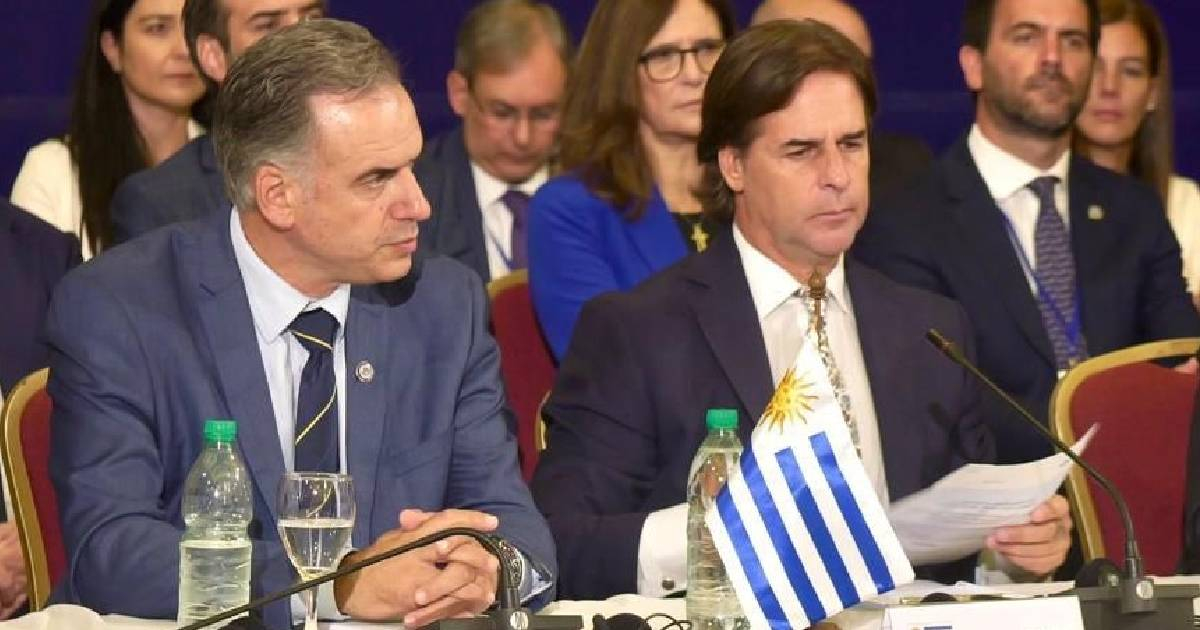Uruguay's President, Luis Lacalle Pou, has opted against extending invitations to the governments of Cuba, Venezuela, and Nicaragua for the inauguration ceremony of President-elect Yamandú Orsi, scheduled for March 1, 2025. According to reports from El País Uruguay, Lacalle Pou's decision stems from his critical stance on these regimes, which he has described as dictatorial.
The incoming administration under Orsi had requested that all countries with which Uruguay maintains diplomatic relations, including the aforementioned three, be invited. Nevertheless, the outgoing government decided not to extend such invitations. This move has sparked various reactions within Uruguay's political sphere. While the outgoing coalition supports Lacalle Pou's decision, deeming it consistent with his foreign policy, the Frente Amplio has expressed its discontent.
"The current president did not sign off on three specific cases that we know of, and there may be more. We are not happy with this; we would have preferred a general invitation," remarked Mario Lubetkin, the future foreign minister of Uruguay in Orsi's Frente Amplio government.
Despite Lacalle Pou's refusal, Lubetkin noted that invitation notes have been sent to the ambassadors of the respective countries, and he expects their presence. Meanwhile, the future Secretary of the Presidency, Alejandro "Pacha" Sánchez, emphasized that "the number of leaders attending this ceremony will be the largest since the return to democracy," as reported by El País Uruguay.
In his view, "the incoming government aims to establish diplomatic relations with all countries from day one, regardless of ideological perspectives on internal affairs or the characteristics of their presidents." Yamandú Orsi, the Frente Amplio candidate, won the presidency in Uruguay's elections on November 24, 2024, marking the left's return to power after five years under the National Party.
Orsi, supported by former President José "Pepe" Mujica, secured approximately 50% of the votes, defeating official candidate Álvaro Delgado. In his victory speech, Orsi emphasized the importance of unity and tolerance in building a better country, calling for national dialogue to find the best solutions.
On the other hand, the outgoing President Lacalle Pou has maintained a critical and firm stance toward the Cuban government since taking office in 2020. He has frequently labeled the Havana regime as a "dictatorship" and condemned human rights violations on the island.
In July 2021, Lacalle Pou asserted that "Cuba is a dictatorship, and those who refuse to see it likely have strong ideological affinities." These statements highlight his conviction that Cuba's situation is clear and that its denial is ideologically motivated.
During the VI Summit of the Community of Latin American and Caribbean States (CELAC) in September 2021, the Uruguayan leader directly confronted Cuban ruler Miguel Díaz-Canel. In his speech, Lacalle Pou cited lines from the song "Patria y Vida," a symbol of Cuban opposition, noting that those who perform it "feel oppressed by the government."
This stance has been acknowledged and appreciated by the Cuban community in Uruguay. In September 2021, groups of Cuban residents in Montevideo demonstrated to express their gratitude to Lacalle Pou for his solidarity and support for the cause of freedom in Cuba.
Additionally, in December 2023, the Uruguayan president reaffirmed his commitment to human rights by addressing the situation of Cuban migrants in Uruguay. He acknowledged that many arrive in Uruguay because "they have no other choice," highlighting the difficult conditions they face in their home country.
Key Reactions to Lacalle Pou's Decision
Why did Lacalle Pou decide not to invite Cuba, Venezuela, and Nicaragua?
Lacalle Pou's decision is based on his critical view of these regimes, which he considers dictatorial. He has consistently opposed their human rights records.
How did the political community in Uruguay react to this decision?
The outgoing coalition supports Lacalle Pou's decision for its alignment with foreign policy, while the Frente Amplio expressed its disappointment, preferring a general invitation policy.
What was Lacalle Pou's stance on the Cuban government during his presidency?
Throughout his presidency, Lacalle Pou has been vocally critical of the Cuban government, labeling it a dictatorship and condemning its human rights violations.
